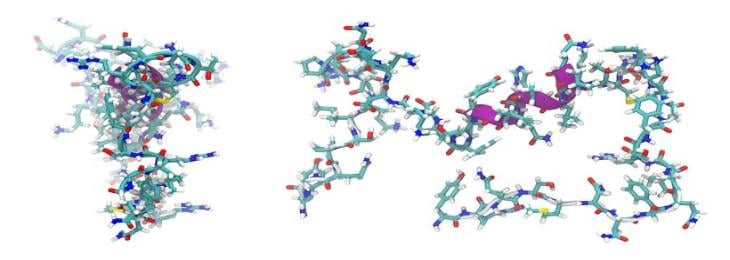
The research indicates that combining CBX-12 with immune checkpoint inhibitors may increase the effect of immunotherapies on cancers that do not typically react to them.
Immune checkpoint inhibitors are frequently used in conjunction with chemotherapy; however, the myelosuppression caused by chemotherapy can decrease the effectiveness of immunotherapy. Chemotherapy is linked to a variety of side effects owing to its impact on non-cancer cells. CBX-12 is a peptide-drug combination that distributes exatecan, a powerful cytotoxic agent, to cells having a low pH condition, which is common in all types of cancer. CBX-12 employs a novel pH-low insertion peptide that exhibits a structural shift in the case of low pH, allowing the peptide to release exatecan inside the cell.
Associate director of biology at Cybrexa Therapeutics, Sophia Gayle, and her team utilized colorectal cancer mice models to assess the effect of CBX-12 therapy on the effectiveness of CTLA4- and PD-1- targeted immune checkpoint inhibitors. When comparing to mice treated with immune checkpoint inhibition alone, mice getting the combined therapy had considerably delayed tumor development, better survival, and full tumor regressions. At the time CBX-12 was coupled with a PD-1 inhibitor, tumor development was slowed four times longer, and it was slowed ten times extended when treated with a CTLA4 inhibitor. Furthermore, mice that had full tumor regressions showed longstanding immunological memory post tumor recurrence. CBX-12-treated tumor cells were injected into mice, resulting in anti-tumor immunity on tumor test, showing that CBX-12 caused death from immunogenic cells. Sophia Gayle mentioned that the results can benefit a broad variety of patients, with 80 % having tumors that give no reaction to immune checkpoint inhibitors.
One drawback of the study is that all tests were carried out in preclinical models; hence, additional research is needed to determine the impact of the therapy on patients. The phase I clinical investigation is now underway to assess the safety and suggested phase II dosage of CBX-12.






